Related Research Articles

Robin Hugh Gibb was a British singer and songwriter. He gained worldwide fame as a member of the Bee Gees with elder brother Barry and twin brother Maurice. Robin Gibb also had his own successful solo career. Their youngest brother Andy was also a singer.

Maurice Ernest Gibb was a British musician and songwriter. He achieved worldwide fame as a member of the pop group Bee Gees. Although his elder brother Barry Gibb and twin brother Robin Gibb were the group's main lead singers, most of their albums included at least one or two songs featuring Maurice's lead vocals, including "Lay It on Me", "Country Woman" and "On Time". The Bee Gees are one of the most successful pop-rock groups of all time.

Cucumber Castle is the seventh studio album by the Bee Gees, released in April 1970. It was produced by Barry Gibb, Maurice Gibb, and Robert Stigwood. It consists of songs from their television special of the same name, which was named after a song on their 1967 album Bee Gees' 1st. Cucumber Castle is the only Bee Gees album not to feature any recorded contributions from Robin Gibb, as he had left the group before the album was recorded.
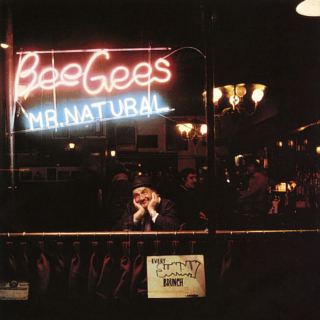
Mr. Natural is the twelfth studio album by the Bee Gees, released in 1974. It was the first Bee Gees release produced by Arif Mardin, who was partially responsible for launching the group's later major success with the follow-up album Main Course. The album's rhythm and blues, soul, funk, and hard rock sounds initiated the group's reinvention as a disco and blue-eyed soul act, which would solidify on subsequent albums. However, Barry Gibb has said that the album was "whiter" than Main Course. The cover photograph was taken at 334 West 4th Street, Greenwich Village, New York City by Frank Moscati, which is today known as The Corner Bistro tavern.

Horizontal is the fourth studio album by the Bee Gees, and their second album to receive an international release. The LP was released in early 1968, and included the international hit singles "Massachusetts" and "World". On 5 February 2007, Reprise Records reissued Horizontal with both stereo and mono mixes on one disc and a bonus disc of unreleased songs, non-album tracks, and alternate takes. The album was released in Polydor in many countries and on Atco only in the US and Canada. "And the Sun Will Shine" was released as a single only in France. The influences displayed on the album range from the Beatles to baroque pop.

The Bee Gees Sing and Play 14 Barry Gibb Songs is the debut studio album by the Bee Gees. Credited to Barry Gibb and the Bee Gees, it was released in November 1965 on the Australian Leedon label. It is largely a compilation of most of the Gibb brothers' singles that had been released over the previous three years in Australia, which accounts for the many different styles of music on it.
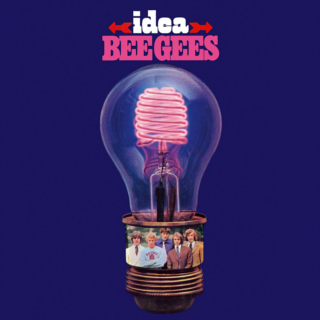
Idea is the fifth album by the Bee Gees. Released in August 1968, the album sold over a million copies worldwide. The album was issued in both mono and stereo pressings in the UK. The artwork on the Polydor release designed by Wolfgang Heilemann featured a "beehive" neon lightbulb with a group photo in its base, while the North American ATCO release designed by Klaus Voormann featured a composite head made from each band member. It was their third internationally released album – the first two albums being released only in the Australian market.
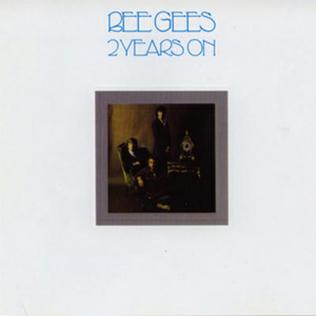
2 Years On is the eighth studio album by the Bee Gees, which reached No. 32 on the US charts. Released in 1970, the album saw the return of Robin Gibb to the group after an earlier disagreement and subsequent split following Odessa. 2 Years On was the first album with drummer Geoff Bridgford, who remained a full-time member of the group until 1972 although he was not pictured on the sleeve. The best-known track is "Lonely Days". Released as the first single by the reunited brothers, it charted high in the US, but only reached No. 33 in the United Kingdom.
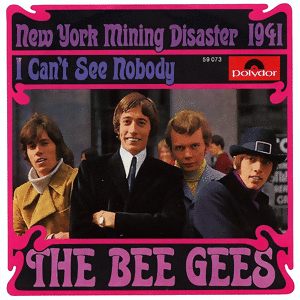
"New York Mining Disaster 1941" is the debut American single by the Bee Gees, released on 14 April 1967. It was written by Barry and Robin Gibb. Aside from a moderately successful reissue of their Australian single "Spicks and Specks," it was the first single release of the group's international career and their first song to hit the charts in both the UK and the US. It was produced by Ossie Byrne with their manager Robert Stigwood as executive producer. The song was the first track of side two on the group's international debut album, Bee Gees' 1st. This was the first single with Australian drummer Colin Petersen as an official member of the band.
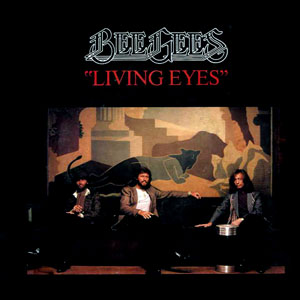
"Living Eyes" is a power ballad recorded by the Bee Gees and was released in November 1981 as the second single and title track off the LP of the same name. It was written by Barry, Robin & Maurice Gibb. The sound of this single was closer musically to the rest of the album than its predecessor, "He's a Liar".
"World" is a song by the Bee Gees, released in 1967 as a single in the United Kingdom and Europe and then included on their album Horizontal the following year. Though it was a big hit in Europe, Atco Records did not issue it as a single in the United States, having just issued a third single from Bee Gees' 1st, "Holiday".

"I.O.I.O." is a song by the Bee Gees, released on the album Cucumber Castle. It was written by Barry and Maurice Gibb. The song was released as a single in March 1970, and was also one of the highlights of the album. The single was a relative success mainly on European charts. Its music video is taken from the film Cucumber Castle.

"Peace of Mind" is a song by the Bee Gees, released in Australia in March 1964 as their third single, backed with "Don't Say Goodbye".

"This Is Where I Came In" is the final single by the Bee Gees, released on 26 March 2001 as the only single from their last album of the same name. The song was written by Barry, Robin and Maurice Gibb. Lead vocals were performed by Robin Gibb on the first verse and on the chorus, while Barry Gibb sang lead on the second verse and sings harmony on the chorus.
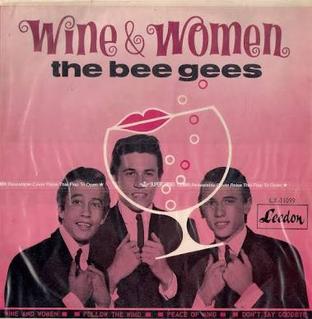
"Wine and Women" is a song written by Barry Gibb, and released by Barry Gibb and the Bee Gees in September 1965 on Leedon Records in Australia. The song's B-side was Follow the Wind. The single reached #19 in Australia, marking the Bee Gees' international chart debut. They achieved this by getting as many of their fans as possible to buy enough copies to get the song into the charts at #35 and, thus, to the attention of disc-jockeys.

Robin's Reign is the first solo album by British singer Robin Gibb, a member of the Bee Gees with his brothers Barry and Maurice. Robin had left the group following a disagreement with his brother Barry over who should sing lead vocals. The album was not a commercial success, though it did spawn Gibb's solo hit, "Saved by the Bell". The other songs in the album were produced by Gibb, and the rest was produced with his manager, Vic Lewis. This album was reissued by RSO Records in 1978 and reissued in 1991 on Spectrum Records. The album had a limited CD release in Germany and was made available digitally on Amazon and Spotify in 2011 and iTunes the following year. Gibb would not release another solo album until 1983.

"The Walls Fell Down" is the second single by the English rock duo The Marbles with Lead vocals by Graham Bonnet. It was released in March 1969, and was written and produced by Barry Gibb, Robin Gibb, Maurice Gibb, of the Bee Gees, and was produced by Robert Stigwood.

"You Wouldn't Know" is a song written by Barry Gibb which was recorded by the Bee Gees and released as the B-side of their version of "Everyday I Have to Cry" and later included on the album The Bee Gees Sing and Play 14 Barry Gibb Songs (1965). The album of the same name was released in Europe by Tring Records and features the Bee Gees songs from 1963 to 1966.

Trevor Gordon Grunnill was a British-Australian singer, songwriter and musician. He was one half of the late-1960s musical duo the Marbles, along with Graham Bonnet, whose biggest hit was the UK No. 5 charting track "Only One Woman", and their minor UK hit "The Walls Fell Down".
"Kilburn Towers" is a folk song by the Bee Gees. Written by Barry, Robin and Maurice Gibb in 1968 for the album Idea. It was also released as the B-side of "I Started a Joke" in most territories. This song's length was 2:14 in mono and 2:17 in stereo. The song was produced by the group's manager Robert Stigwood and the Bee Gees. The song was written about the Sydney ocean apartment buildings, Kilburn Towers, built in 1960.
References
- ↑ Brennan, Joseph. "Gibb Songs: 1965". Columbia.edu. Retrieved 6 April 2013.
- ↑ "The Flanagans - Follow The Wind". 45cat.com. Retrieved 31 May 2019.
- ↑ "Follow the Wind / Land of Beyond by The Flanagans". Rateyourmusic.com. Retrieved 31 May 2019.
- ↑ "THE FLANAGANS 'Follow the wind' OZ 60s pop 45 Bee Gees". Popsike.com. Retrieved 31 May 2019.